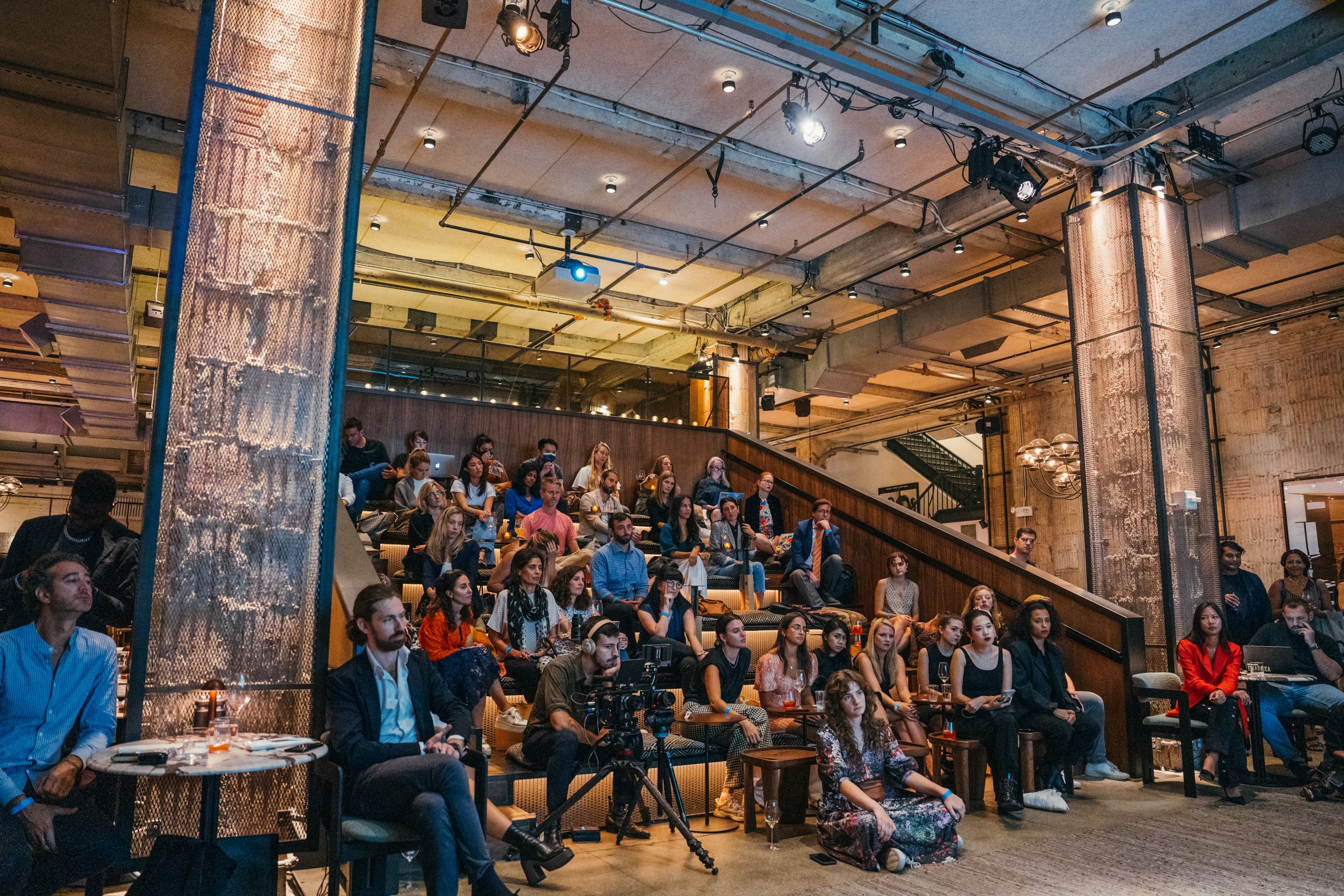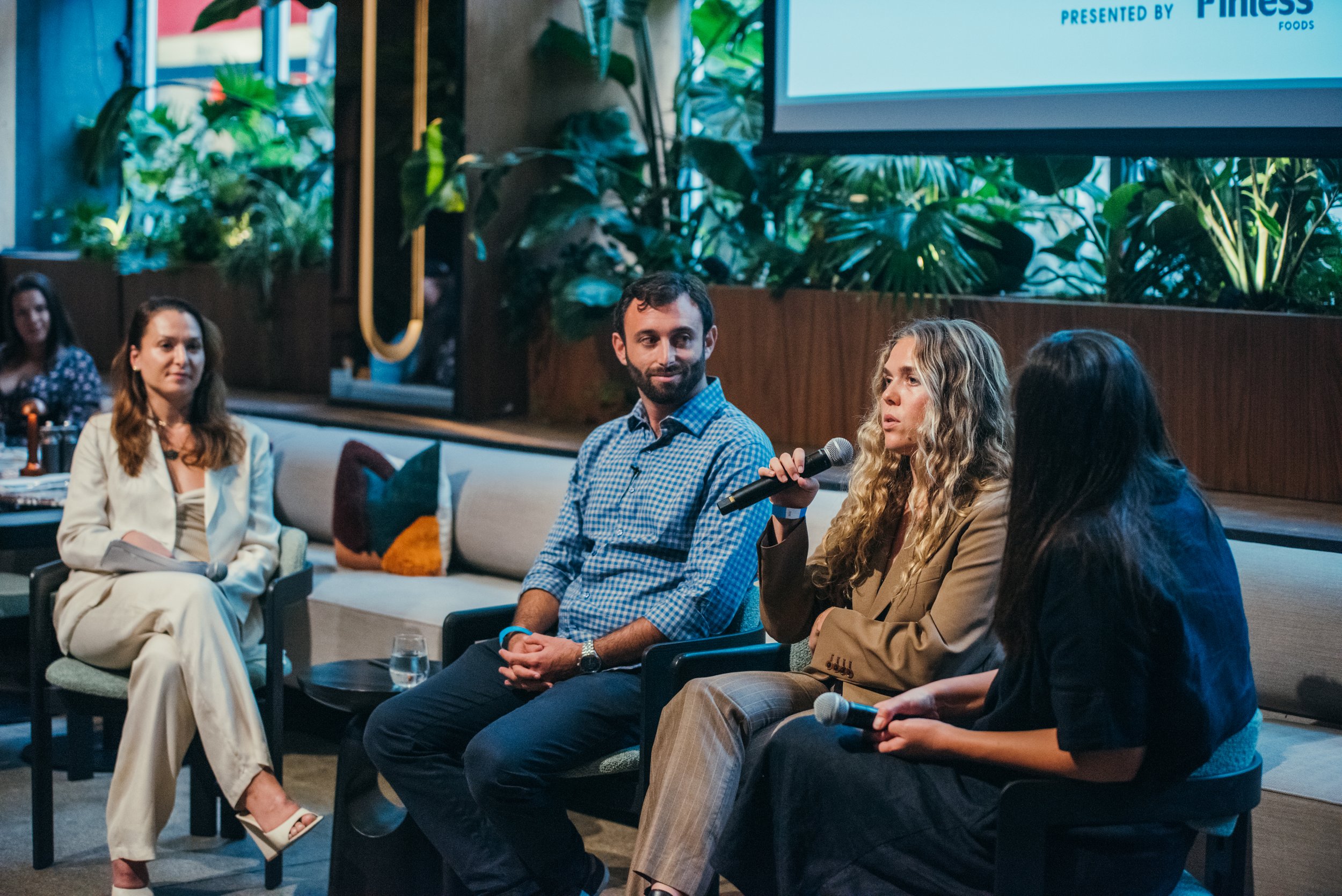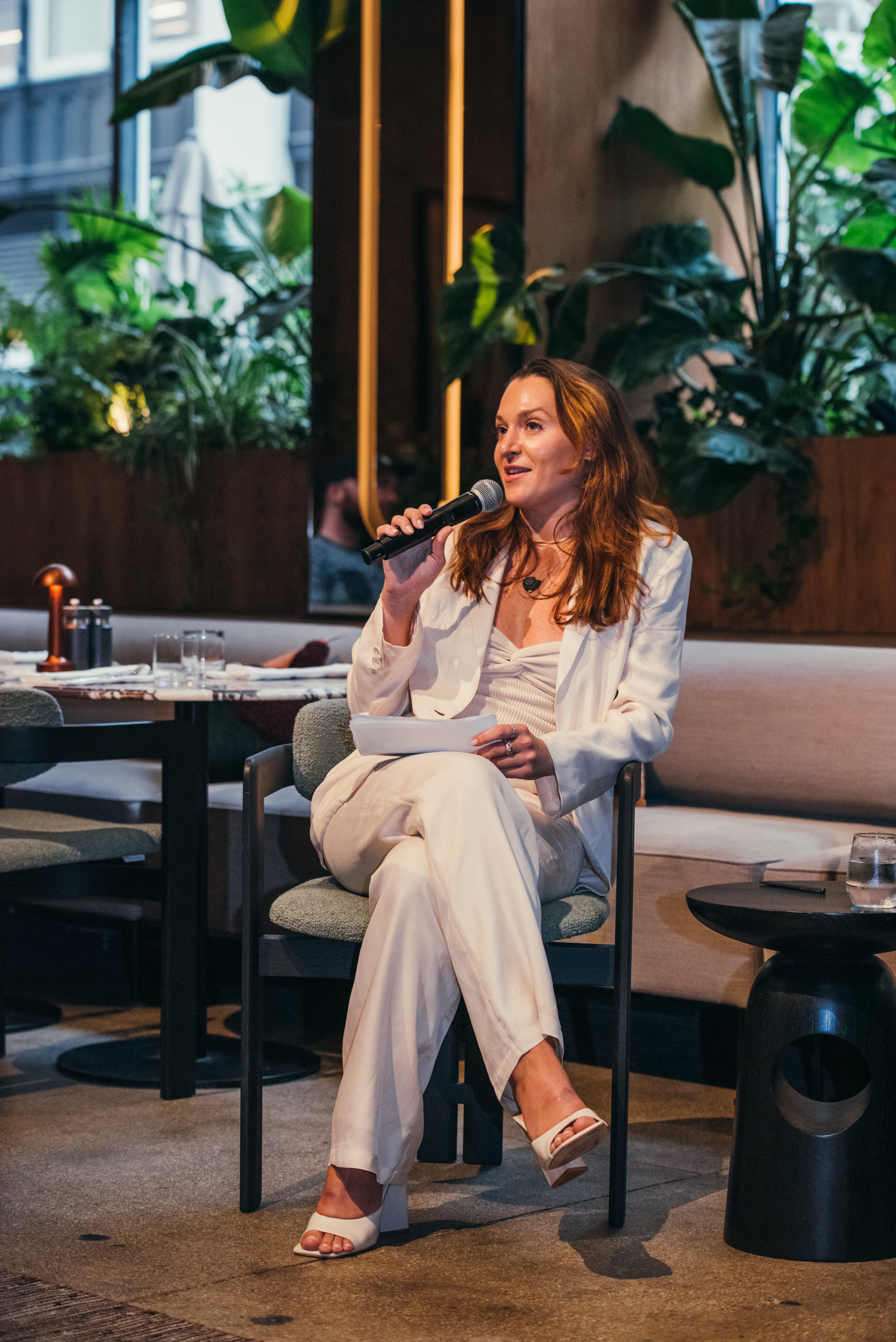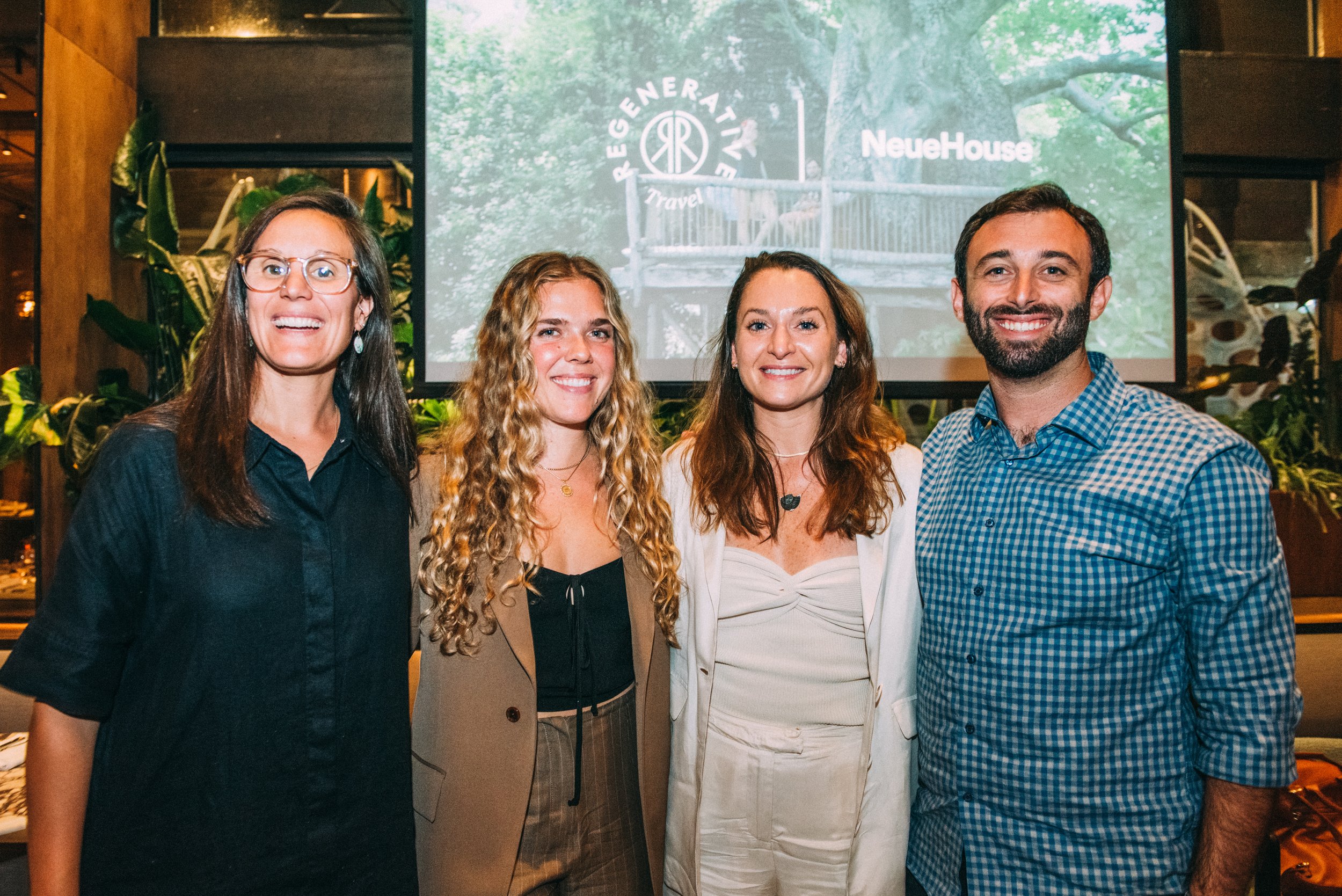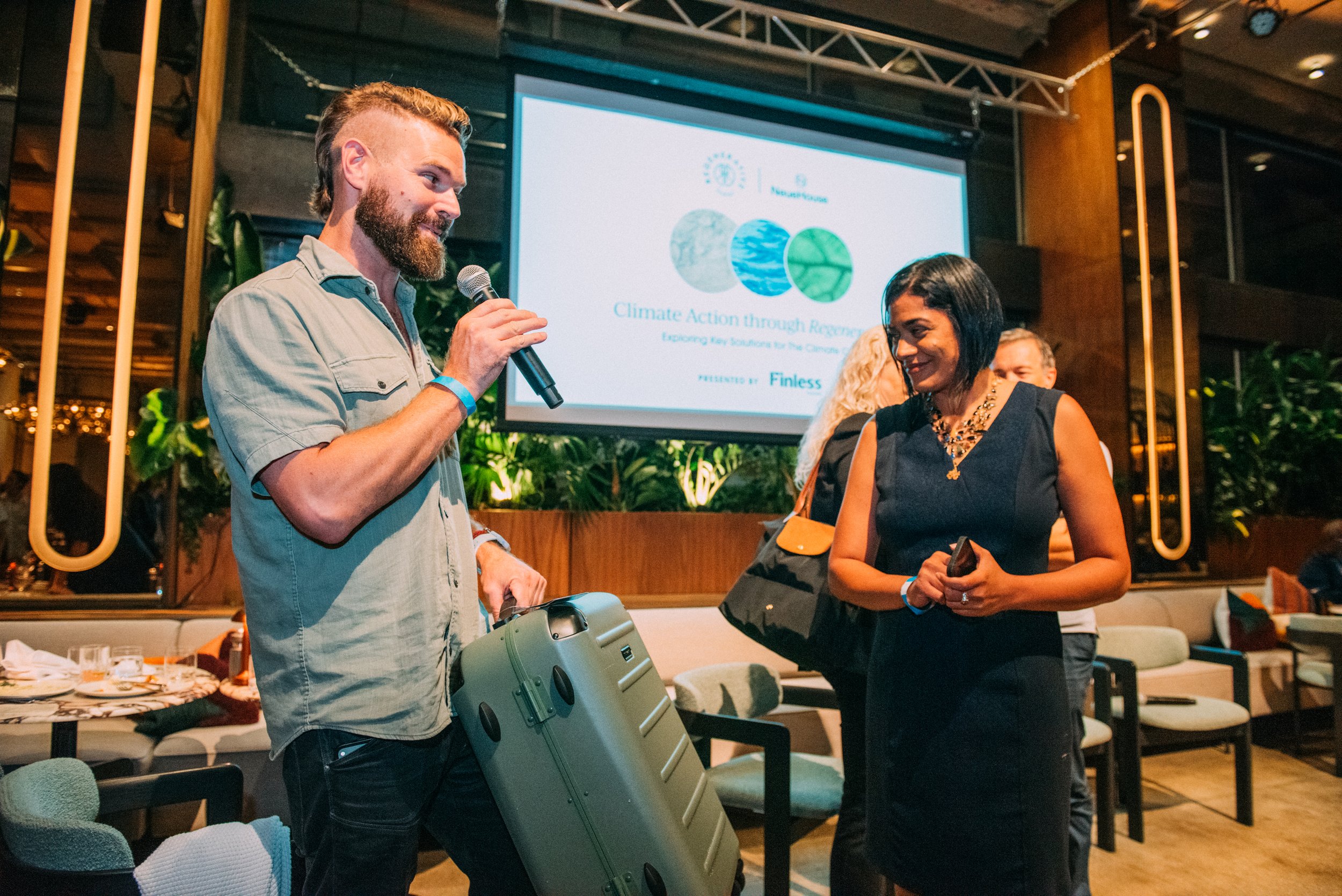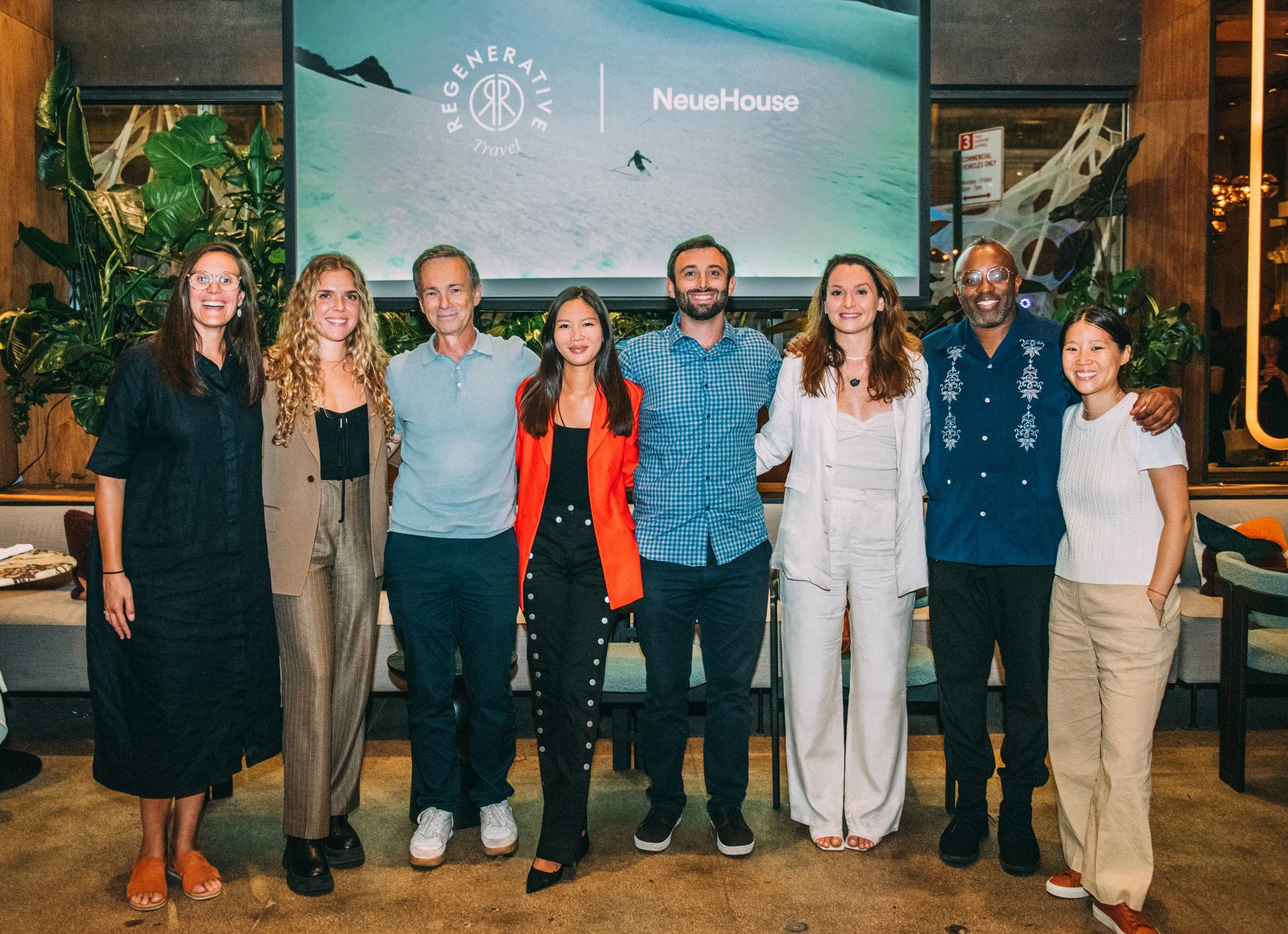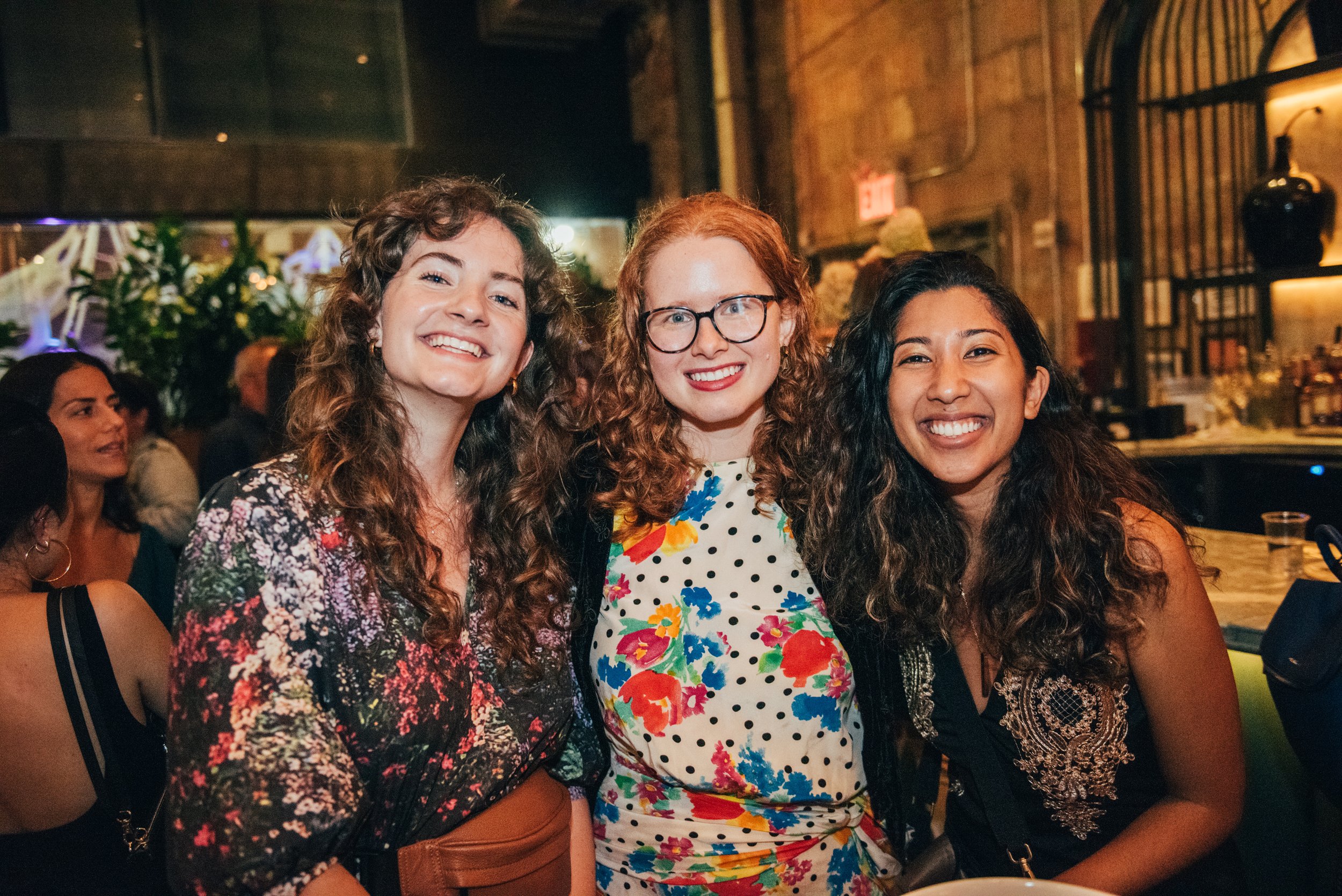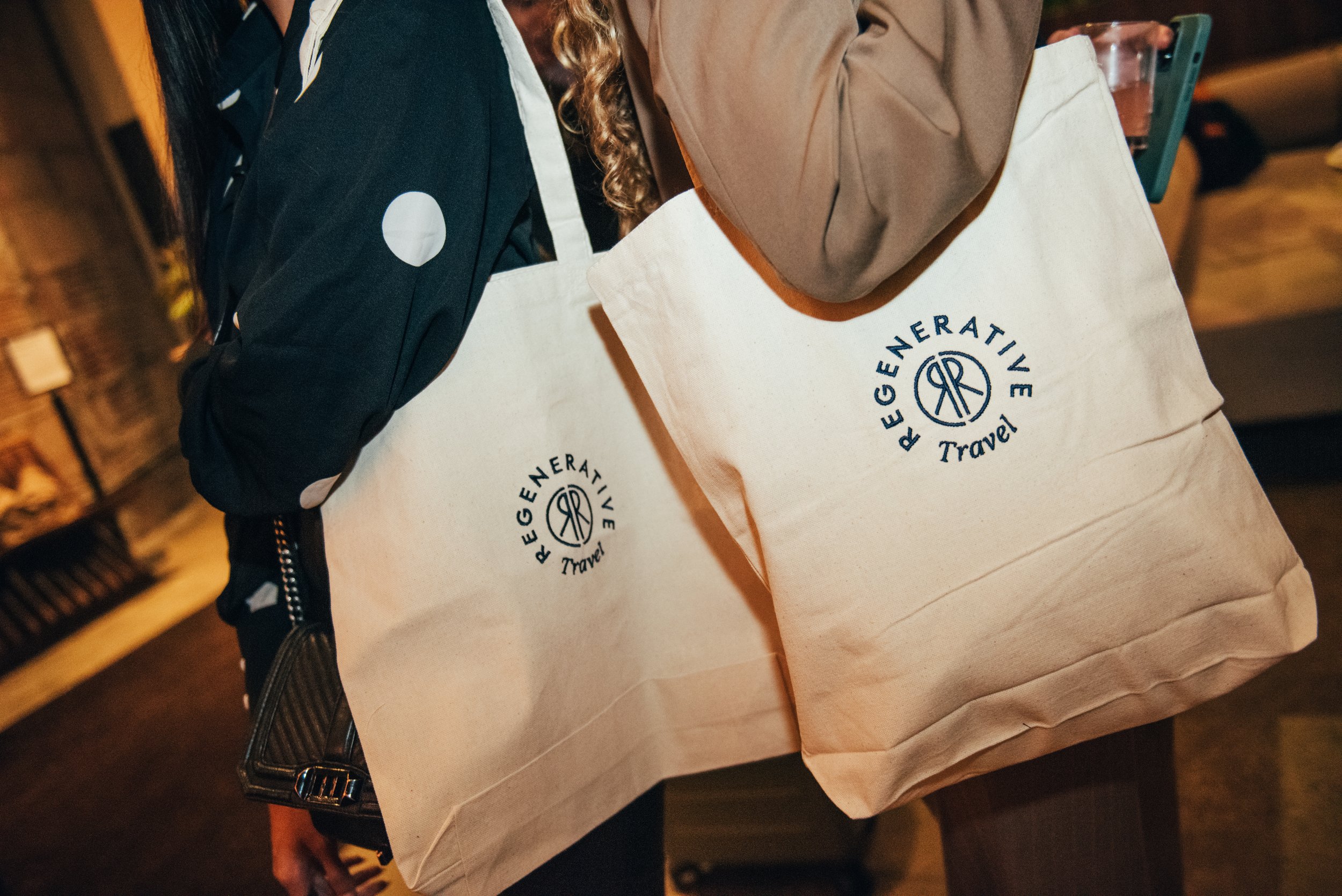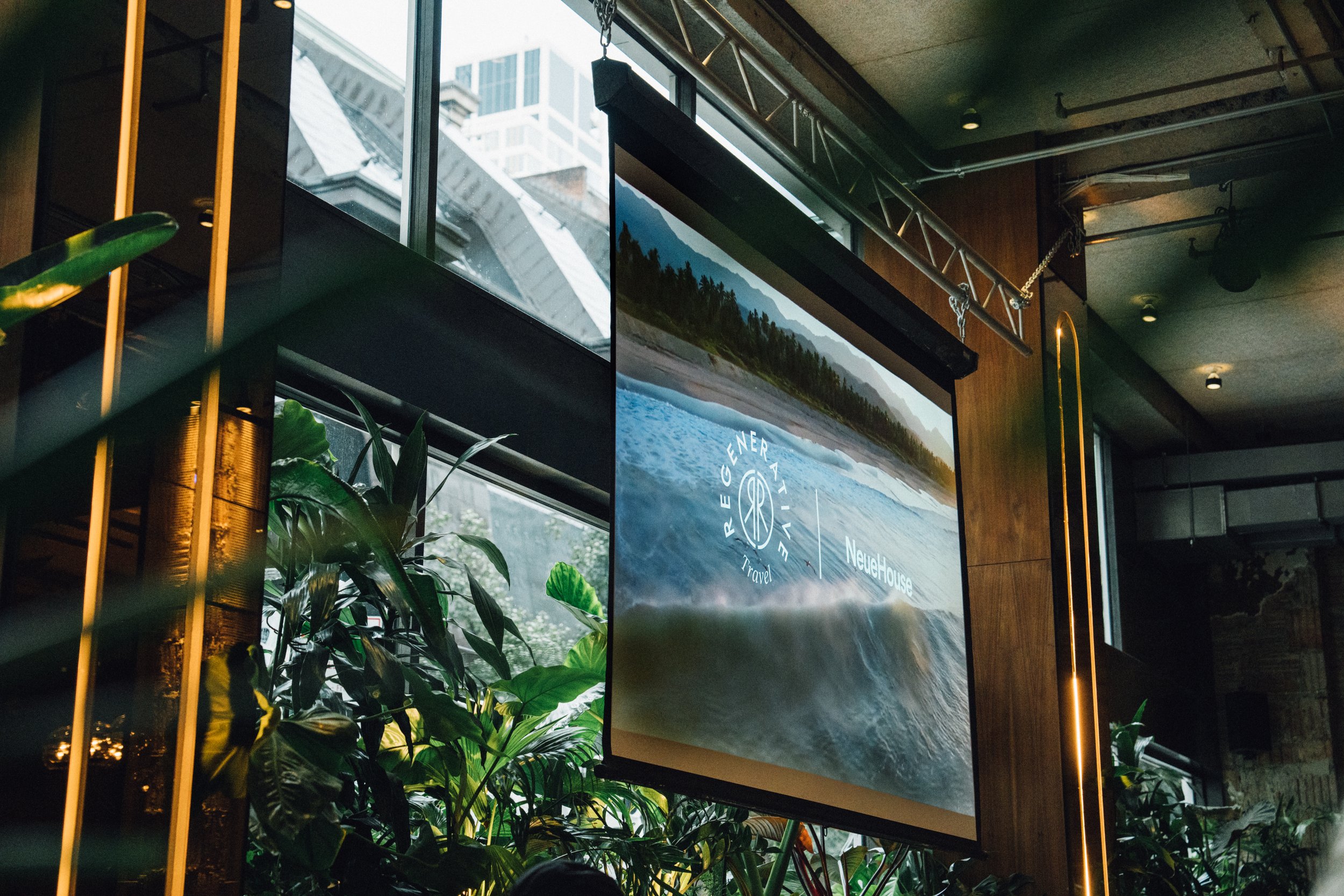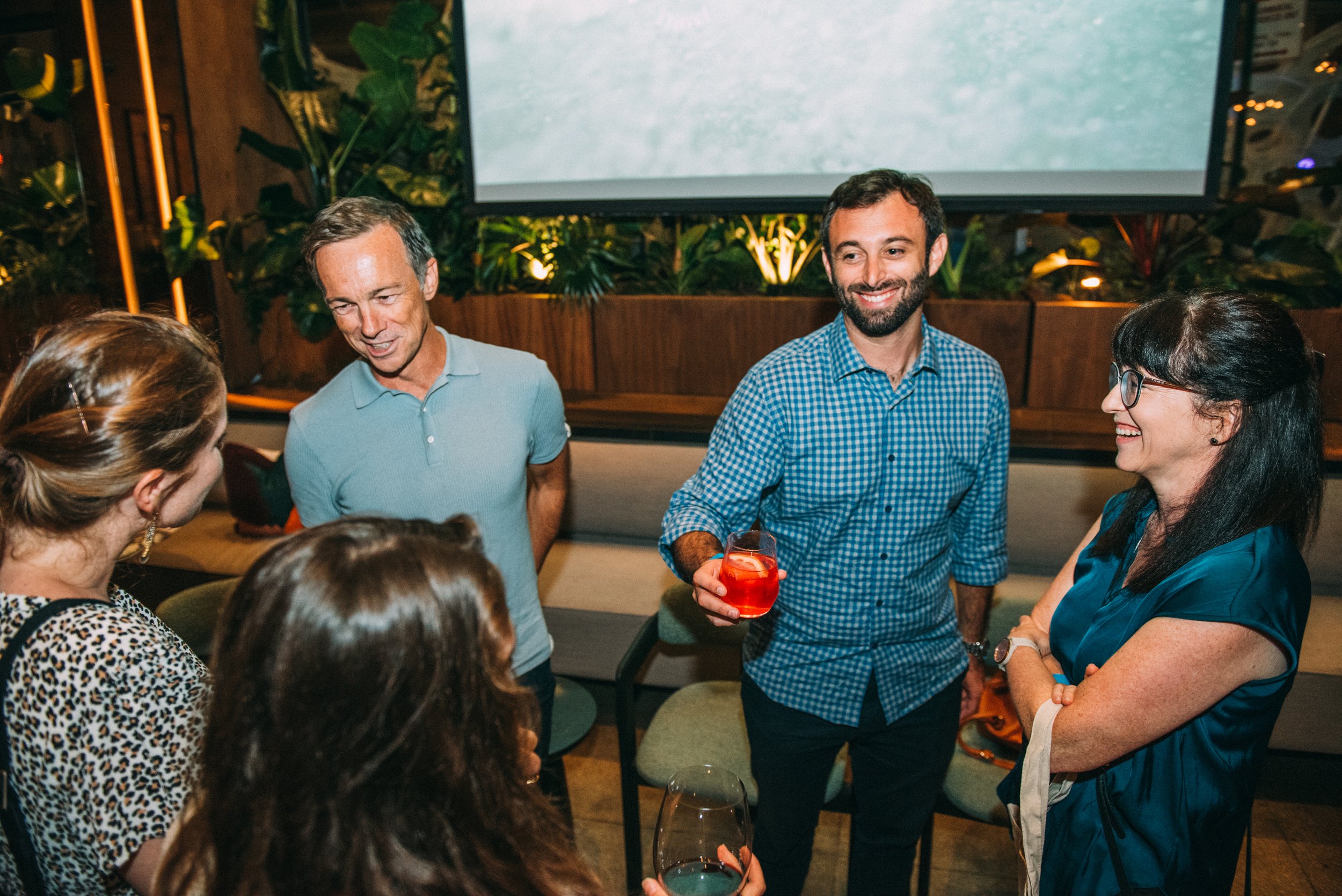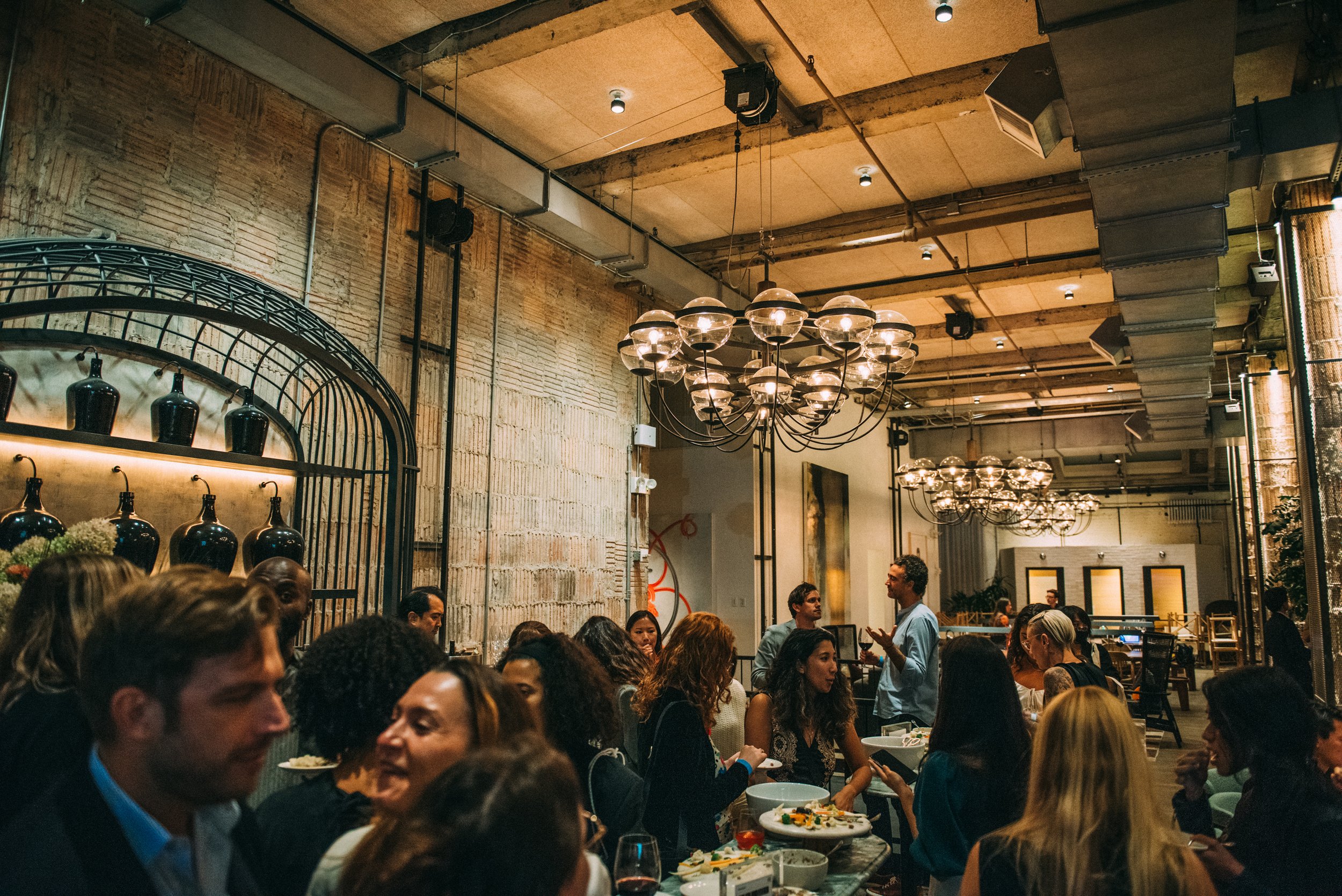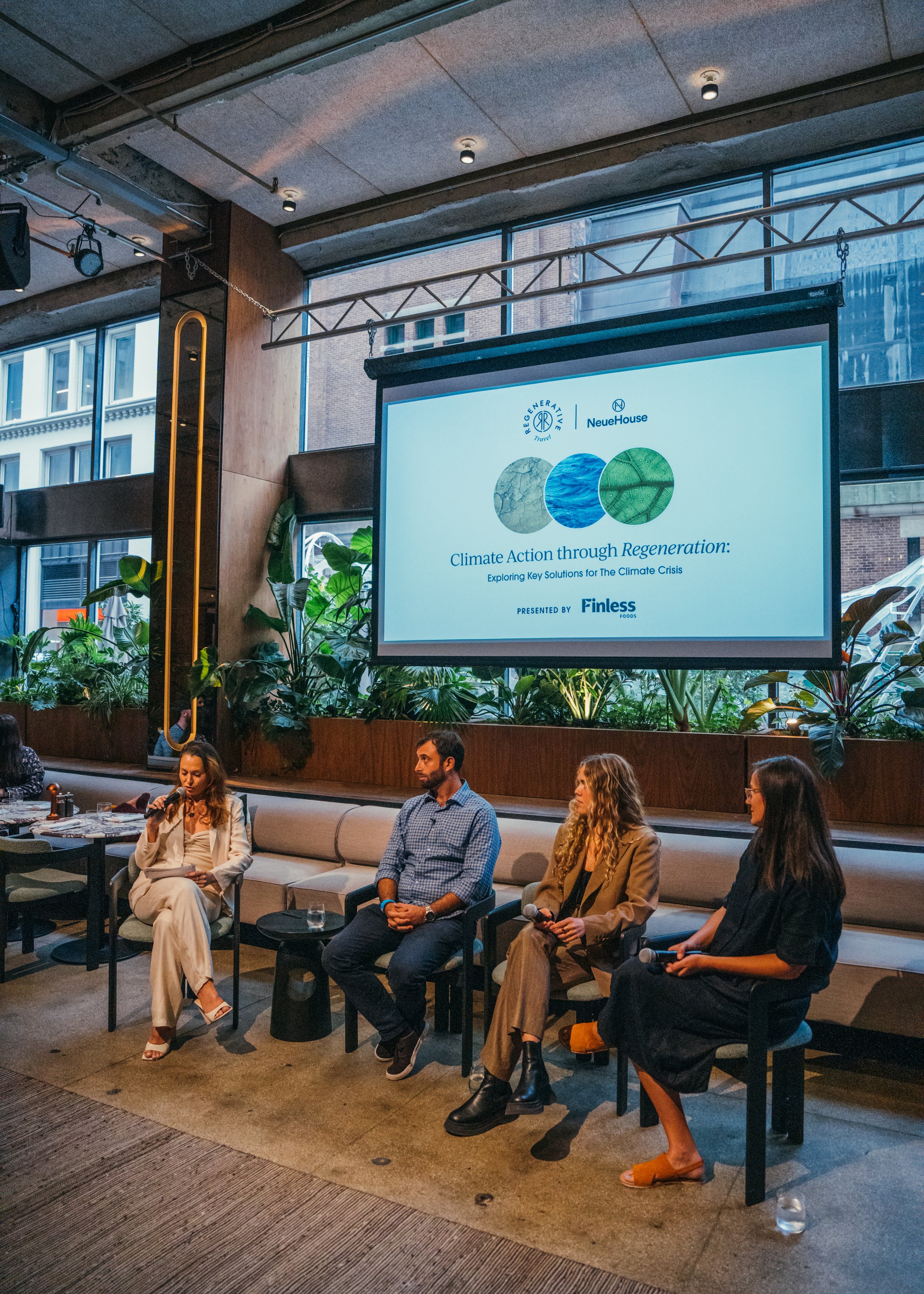Building A Better Future At Climate Week NYC 2022
Coalition-building, industry disruption and internal/external organizational alignment were among the top strategy topics discussed at our event during Climate Week New York 2022, presented by Finless Foods.
Over 100 climate activists, journalists, sustainability professionals and community members gathered at The Gallery stage at NeueHouse in New York City to discuss sustainability and community resilience through the lenses of regenerative travel and the ocean economy.
The first session, moderated by Founder of Phocus Creative Group Brittany DeGirolamo, emphasized the need for industry leaders to spearhead and advocate for transformative ocean solutions to mitigate the climate crisis, from coral reforestation and sustainability-as-a-service to plant-based fish and deep sea mining moratoriums.
According to panelist Shannon Cosentino-Roush, Chief Strategy Officer at Finless Foods, a plant-based and cell-cultured tuna company, building coalitions and sharing best practices are crucial to creating the momentum and disruption necessary to shake up entire industries and effect meaningful change.
“A rising tide lifts all boats. I know that phrase is used often, but I think it’s too apt to not be used,” Consentino-Roush said, “I think there’s a perception that as a company, your goal is to further your own products, further your revenue targets, et cetera. But oftentimes I say my goal is really to broaden the industry right now, the alternative [meat] space. So while Finless is out there trying to fight the good fight, we really need to be working together so that all of our combined voices can be loud enough that we’re heard.”
Photo Credit: Jackie Lee
“I think the biggest weakness of the environmental and scientific community is communications,” Teicher said, “The other side really knows the dark arts of PR and has absolutely no qualms whatsoever spending a ton of money and a lot of resources and lying constantly for decades about it. So I think storytelling genuinely has the best role to play.”
“I think in some ways, the call to action really is, get good at the tactics,” Consentino-Roush added, “Getting into the legal strategy or getting into the marketing strategy or getting into government relations and learning how to lobby for good. I think that is something that’s underestimated, especially when you’re punching above your weight. They [the fossil fuel industry and other incumbents] will have more money. They will have 15 person legal teams. You just have to be really sharp. You have to be coordinated and hyper focused on building bridges.”
Also speaking on the panel Vasser Seydel, Campaign Director at The Oxygen Project, shared a personal story from COP 25 to highlight the necessity of agency and integrity within the environmental activist community. “When I asked a minister of economics of a foreign country about deep sea mining, someone pulled me aside and said, do you know what you’re up against? It’s already a done deal. So I went home, quit my job and started a deep sea mining campaign. It was like, okay, I don’t know how I’m gonna do this, but I’m very passionate about this. And it’s just understanding that you have agency and that if you have an idea, no one else is going to do it.”
Coalition-building, industry disruption and internal/external organizational alignment were among the top strategy topics discussed at our event during Climate Week New York 2022, presented by Finless Foods.
The necessity for collaboration was also emphasized during the second panel session on community resilience and regenerative travel, moderated by journalist Sophia Li.
“I think we should always remind ourselves that rugged individualism, that American concept that we can do these things on our own, is not the path forward,” shared Sheldon Scott, Global Head of Purpose at Eaton Workshop, an impact-focused regenerative hotel with locations in both Washington DC and Hong Kong. “There is a heavy, bloody fight ahead to dismantle the systems that have been in place for hundreds, maybe thousands of years. We’re not going to do it as individuals. But what I hope for, is a much bigger army of people.”
Beyond collaboration, sustainability professionals must learn to develop and harness ever-more sophisticated tools for communication and funding, urged Co-Founder of coral restoration organization Coral Vita, Sam Teicher.
“I think the biggest weakness of the environmental and scientific community is communications,” Teicher said, “The other side really knows the dark arts of PR and has absolutely no qualms whatsoever spending a ton of money and a lot of resources and lying constantly for decades about it. So I think storytelling genuinely has the best role to play.”
“I think in some ways, the call to action really is, get good at the tactics,” Consentino-Roush added, “Getting into the legal strategy or getting into the marketing strategy or getting into government relations and learning how to lobby for good. I think that is something that’s underestimated, especially when you’re punching above your weight. They [the fossil fuel industry and other incumbents] will have more money. They will have 15 person legal teams. You just have to be really sharp. You have to be coordinated and hyper focused on building bridges.”
Also speaking on the panel Vasser Seydel, Campaign Director at The Oxygen Project, shared a personal story from COP 25 to highlight the necessity of agency and integrity within the environmental activist community. “When I asked a minister of economics of a foreign country about deep sea mining, someone pulled me aside and said, do you know what you’re up against? It’s already a done deal. So I went home, quit my job and started a deep sea mining campaign. It was like, okay, I don’t know how I’m gonna do this, but I’m very passionate about this. And it’s just understanding that you have agency and that if you have an idea, no one else is going to do it.”
Speaking about Finless’s internal sustainability programs, Consentino-Roush added, “Even though we’re a small but mighty team of 34 people, one of our most recent hires was a sustainability lead. I don’t know that many companies of our size would prioritize having a sustainability lead, but to me, it was a no brainer because the entire mission of the company can only be realized if everything we do internally prioritizes sustainability. To have credibility in the broader industry, you can’t just say that it’s important. You have to show that you’re doing it and that you’re putting your money where your mouth is. It has to be both external and internal.”
The event concluded with an hour of networking for all to enjoy in the beautiful Neuehouse Lobby Bar where cocktails and snacks were served.

